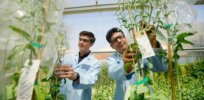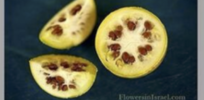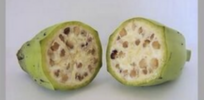GMO Answers

Infographic: GMO tomatoes? There’s no such thing. Here are the only biotech crops grown in the US
Are you paying more for “non-GMO pasta?” Then you’re not using your noodle. What are the facts? There are only ...

Viewpoint: ‘There are no long-term GMO safety studies,’ and 9 other biotech myths debunked
Can salt be a GMO? Is it true that no long-term studies have been done on GMOs? There are many ...

Confused about the USDA’s bioengineered food labels? Here’s everything you need to know
In December 2018, the United States Department of Agriculture (USDA) finalized the standards for mandatory “GMO” labeling by releasing the ...

Watermelon before human intervention doesn’t look quite as juicy
Ever wonder what some of your favorite crops would look like completely “organic”? Well, take a look at the watermelon! ...

Behold, the banana without human intervention
Ever wonder what some of your favorite crops would look like completely "organic"? Well, take a look at the banana! ...
Video: How GMOs are created
Learn how GMOs are created in the video below. View the video's YouTube page: How Are GMOs Created? ...
Regulatory and safety status of global GM commodity crops
Currently there are fourteen varieties of the five genetically modified commodity food crops: alfalfa, canola, sugar beet, soybean and corn ...
Crop scientist: Glyphosate safe, does not interrupt nutrient uptake in roots
In a response on GMO Answers, the industry created website that allows anyone to ask questions to scientists about GMOs, ...
Plant geneticist Kevin Folta explains GMO process in foods
When humans began to farm between ten and twenty thousand years ago, they took the seeds from their best edible ...

